| | | 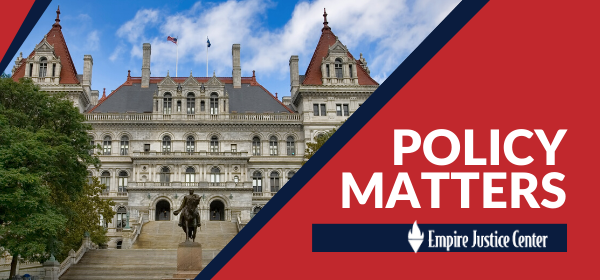 | | Policy Matters - December 2020 Welcome to the December edition of our newsletter, Policy Matters. In this edition we cover a victory for SNAP recipients, protections for immigrant New Yorkers going to court, rights for nursing home residents, foreclosure prevention, and a roadmap for justice. You can also read on our website here. |
| |
|
|  | SNAP Victory for Online Groceries COVID-19 means more people than ever need access to safer shopping alternatives for groceries, such as online shopping and delivery, especially for folks who are disabled, senior citizens, immunocompromised, or otherwise high risk. But until recently, these options were not available to New Yorkers relying on the Supplemental Nutrition Assistance Program (SNAP). A pilot program for online grocery shopping for SNAP recipients began in 2019. After the pandemic began, Empire Justice Center and the National Center for Law and Economic Justice (NCLEJ) worked with Senator Kaminsky and Assemblymember Hevesi to develop and pass a bill (A.10673/S.8247-A) which would codify this pilot and make it permanent. Governor Cuomo signed this bill into law on December 15. Thanks to the codification of this program, SNAP recipients will continue to be able to purchase groceries from eligible online retailers and have groceries delivered, and the SNAP outreach program must include information about the delivery option. |
| | ICE Out of Courts In a victory for the sanctity of NYS courts and safety of immigrant communities, the Governor signed into law the Protect Our Courts Act (A.2176/S.0425), which bars federal immigration officers from making civil arrests in state courthouses without a judicial warrant. We are proud to have been a part of pushing for this important legislation! |
| | 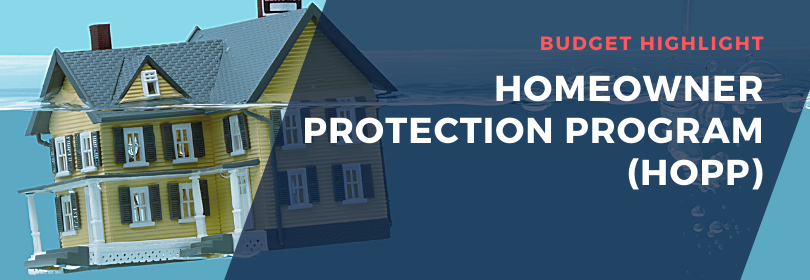 | Budget Highlight: Homeowner Protection Program (HOPP) As the budget season continues to ramp up we are highlighting a number of our programs – what they are, who they serve, and why they’re important. In this edition we will be focusing on the Homeowner Protection Program, or HOPP. What is HOPP? The Homeowner Protection Program (HOPP) is a statewide network of legal services and housing counseling organizations that provide New York homeowners with free, qualified mortgage assistance relief services. HOPP advocates help struggling homeowners with loan modifications, represent homeowners in settlement conferences and other court proceedings, negotiate alternatives to foreclosure, and offer general homeownership counseling. |
| 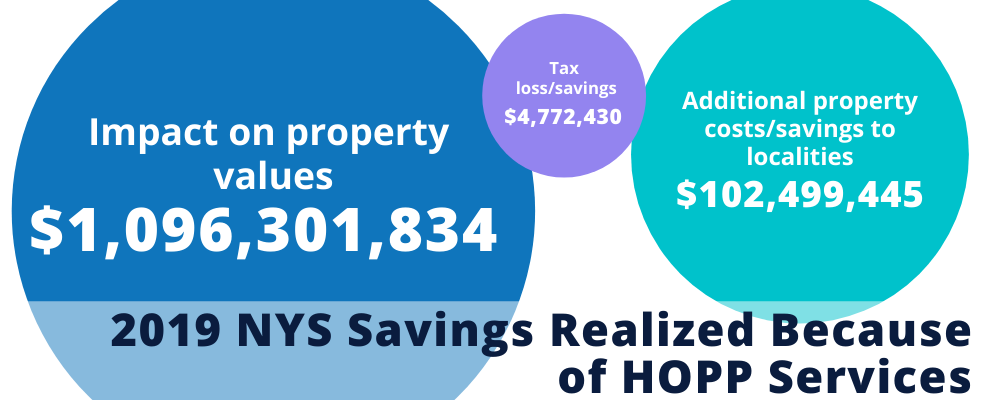 | Why is HOPP Important? HOPP serves approximately 15,000 New Yorkers a year, helping families keep their homes and avoid homelessness, crushing debt, and displacement. HOPP stabilizes neighborhoods. HOPP network members work with NYS Homes and Community Renewal (HCR) to identify vacant and abandoned properties for the Community Restoration Fund (CRF); assist in efforts addressing neighborhood blight; and prepare individuals and families to become homebuyers. HOPP saves NYS money. Every $1 million invested in HOPP yields a return of $5 million in tax and property cost savings alone, and when impact on property values and additional costs/savings to localities are factored in, HOPP saves New York State over $1.2 billion dollars a year. |
| “They were able to help me get the loan to pay off the reverse mortgage so I could keep my home.” – Dorothy Simmons, former HOPP client. |
| Who Does HOPP Serve? Since its inception in 2012, HOPP has helped over 100,000 families. Even in cases where home ownership can’t be preserved, HOPP is able to help families to stay in their home as long as possible (which keeps New Yorkers housed and prevents vacant buildings), find new housing, and preserve their savings by avoiding scams, deficiency judgements, and negative tax implications. Stable funding of $20 million is essential for HOPP to tackle the challenges homeowners are beginning to face due to the COVID-19 pandemic. |
| | 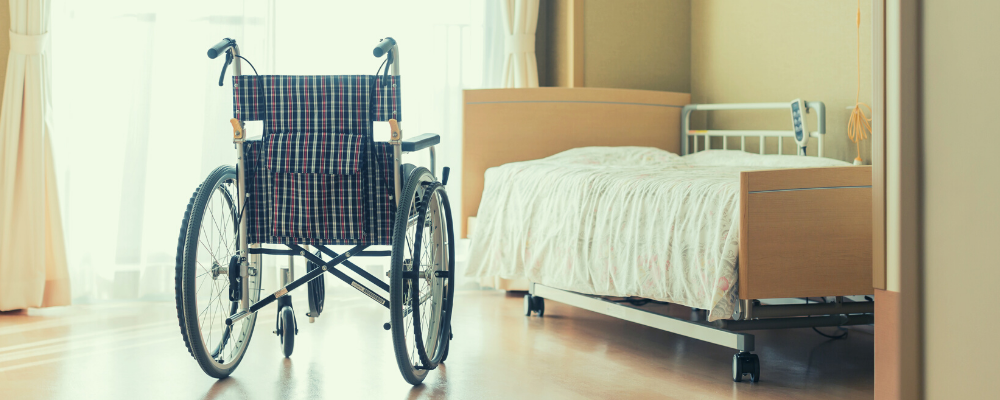 | Rights for Nursing Home Residents Any nursing home resident who is facing an involuntary discharge has rights, including a right to a hearing to dispute the discharge. Federal and state laws require hearing decisions to be accessible to the public. In order to give consumers, attorneys, and others sufficient time to research precedent prior to a hearing, there should be public online access to appeal hearing decisions – but that access does not currently exist. Instead, New Yorkers are forced to go through a time-consuming and burdensome Freedom on Information Law (FOIL) request. Empire Justice joined other health advocates from the Center for Law and Justice, Legal Assistance of Western New York (LAWNY), Mobilization for Justice, Long Term Care Community Coalition, and the New York Legal Assistance Group (NYLAG) to file a letter with the NYS Department of Health (DOH) to request that the department make nursing home discharge administrative appeal hearing decisions available to the public in a searchable online database. |
| | Roadmap for Justice Empire Justice Center joined over a hundred other organizations in signing onto the Justice Roadmap for 2021, a legislative agenda designed to address the harms caused by the deeply entangled criminal legal and immigration systems. |
| |
|
| 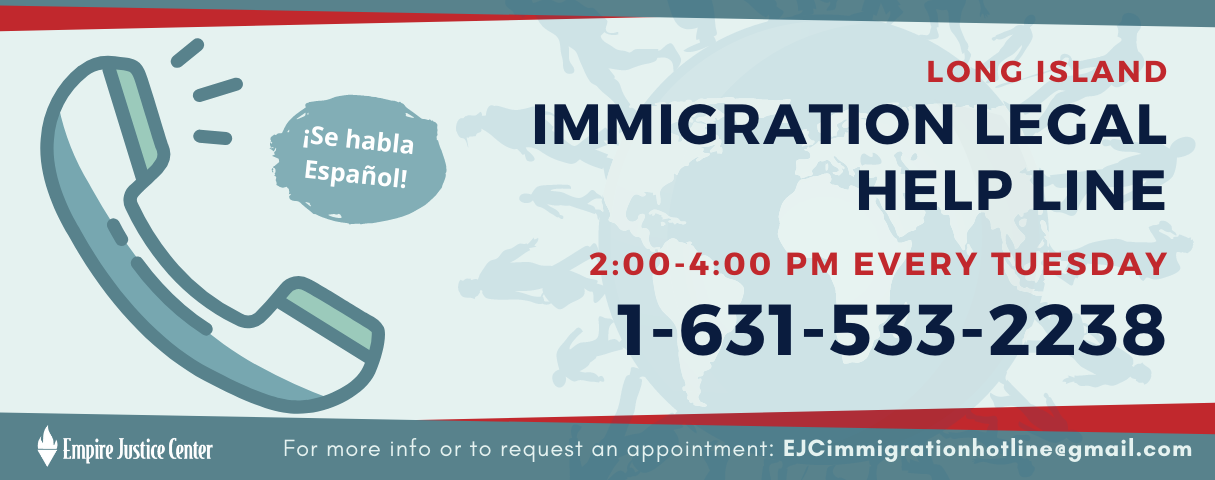 | Long Island Immigration Legal Help Line Our Long Island Immigration Legal Help Line is available every Tuesday from 2:00-4:00 pm, at 631-533-2238 to speak to an immigration attorney from Empire Justice Center who will answer your questions on your legal rights. Or email us at EJCimmigrationhotline@gmail.com to make an appointment. ¡Se habla Español! |
|
|
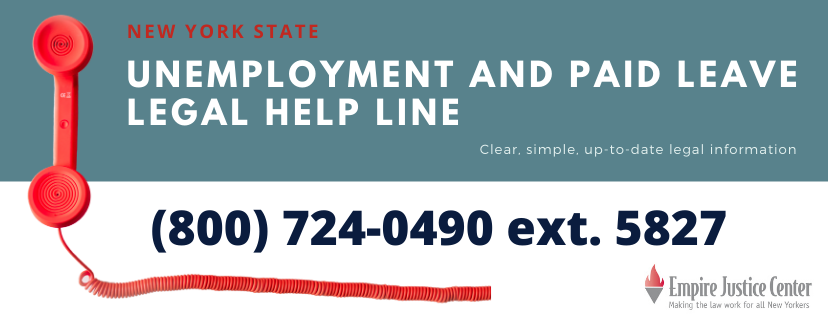 | Unemployment and Paid Leave Legal Help Line Our Unemployment and Paid Leave Legal Help Line is available every day from 9:00am-5:00pm, at 800-724-0490 ext. 5827. If you have questions about unemployment or paid leave, you can call the help line and attorneys will provide legal advice and counsel regarding unemployment benefits, paid leave, and job protections. |
|
|
| Pandemic Unemployment Assistance (PUA), a separate program from regular unemployment assistance, is set to run out on December 31, so if you have questions about it make sure to call our Unemployment and Paid Leave Legal Help Line soon! |
| |
|
| Thank You For Reading If you’d like to keep up with our policy work, follow us on Twitter and Facebook, or visit the Policy Central page on our website. You can find all of our COVID-19 free legal resources on our website, and if you need help, you can find contact information for each of our offices here. We wish you all a safe and socially distant holiday season! The Empire Justice Policy Team |
| | |
|
| | | |
|
|